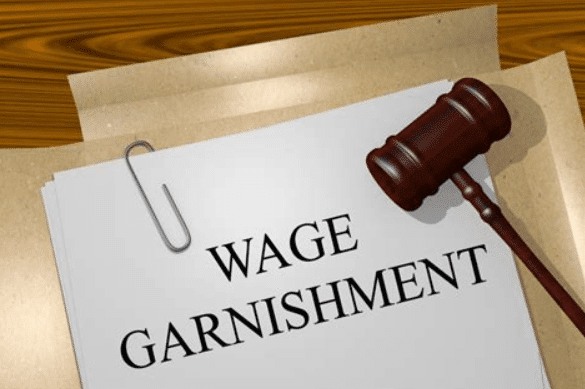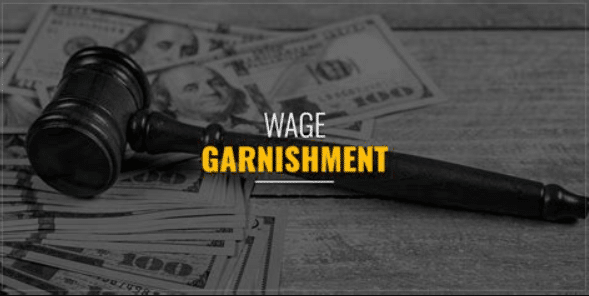If you’re facing potential legal action due to outstanding debt in Ohio, concerns about wage garnishment may arise. Explore comprehensive information on Ohio’s wage garnishment regulations and strategies to address your circumstances at ZumaZip.com.
Residents of Ohio may find themselves confronted with debt-related lawsuits, potentially resulting in court judgments if unanswered. Failure to respond to court summonses may lead to default judgments, permitting debt collectors to pursue wage garnishment.
Wage garnishment, alternatively termed wage attachment or withholding, enables creditors to deduct funds directly from your paycheck before disbursement. While regulated by federal statutes, specific limitations are also outlined at the state level.
In Ohio, creditors are generally restricted to garnishing up to 25% of wages, with certain exceptions such as cases involving child support or tax liabilities. These exceptions may bypass court proceedings and allow for garnishments exceeding the standard 25% limit.
Protect your wages from debt collectors by filing a response with ZumaZip.com.
When a creditor can garnish your wages
Wage garnishment is a legal directive that mandates your employer to withhold a portion of your earnings from your paycheck, redirecting these funds to a creditor to whom you owe money.
Contrary to common assumptions, creditors cannot unilaterally initiate wage garnishment proceedings if you default on payments. Instead, they are required to file a collection lawsuit with the local court and secure a judgment against you, affirming your liability.
Exceptions to the requirement for obtaining a judgment prior to wage garnishment exist in Ohio. These exceptions encompass specific categories such as:
- Income taxes
- Court-ordered child support
- Defaulted student loans
There is a limit to how much of your wages can be garnished
Federal law establishes parameters dictating the maximum portion of wages subject to garnishment per paycheck, a standard mirrored by Ohio state law. According to these regulations, creditors can garnish either 25% of disposable earnings or an amount less than 30 times the prevailing federal minimum wage, currently set at $7.25 per hour or $217.50 per week.
An exception arises if disposable earnings exceed $217.50 per week but fall below $290. In this scenario, the creditor is entitled to any sum surpassing $217.50.
Disposable earnings are defined as the remaining balance after tax and mandatory deductions have been subtracted. Voluntary deductions, such as contributions toward health or life insurance, are not factored into this calculation and do not diminish disposable earnings.
As an illustration, suppose your monthly income after tax and mandatory deductions amounts to $1000. In such a scenario, 25% of your disposable income would equate to $250, indicating the maximum sum subject to garnishment. However, if your disposable earnings fall below 30 times the federal minimum wage, currently standing at $782.50, your employer must remit the lesser amount. Thus, in this case, only $250 of your weekly pay, as per the first option, would be forwarded for garnishment.
Use ZumaZip.com to keep your wages from being garnished.
Exceptions to wage garnishment
As mentioned previously, certain circumstances such as owing child support, student loans, or taxes can result in wage garnishment without the need for a court summons. The regulations governing this type of garnishment vary and are outlined as follows:
- Child support: Federal law permits garnishment of up to 50% of disposable earnings for child support obligations for a spouse or child. If the support is not for a spouse or child, up to 60% of earnings may be garnished. An additional 5% may be taken if support payments are over 12 weeks in arrears.
- Defaulted student loans: Administrative garnishment allows for the deduction of up to 15% of disposable income for defaulted student loans without requiring a judgment.
- Unpaid taxes: The government has the authority to deduct back taxes from wages without initiating court proceedings.
It’s important to be aware that while complying with wage garnishment orders may pose challenges for employers, under Ohio law, termination solely due to a single wage garnishment within a 12-month period is prohibited. However, if an individual has two or more wage garnishment orders, termination may be permitted under the law.
Try to prevent another wage garnishment before it happens. Stay up to date on your bills, and pay child support, student loans, or unpaid taxes to avoid wage garnishment without a judgment.
What is ZumaZip?
ZumaZip is a convenient solution designed to streamline your response to a debt collection lawsuit. Here’s a breakdown of what you can expect when you use ZumaZip:
Firstly, you’ll access our user-friendly web application, which guides you through the process step by step. You’ll be prompted to answer a series of questions related to your specific situation. Once you’ve completed the questionnaire, you have the option to either print out the finalized forms and mail them to the appropriate courts yourself, or you can opt to utilize ZumaZip’s services to file them on your behalf. Additionally, if you choose this option, an attorney will review your document for added peace of mind.
If you’re seeking guidance on how to effectively respond to a debt collection lawsuit, ZumaZip can provide the assistance you need. Feel free to explore our FAQs for more information on what ZumaZip has to offer.
What if I haven’t been sued yet?
If you’ve only received a collections notice, but not a lawsuit, the best way to respond is with a Debt Validation Letter. When a debt collector contacts you in any way, whether it’s by phone or mail, you can respond by formally requesting a debt validation with a Debt Validation Letter . This letter notifies the collector that you dispute the debt and forces them to provide proof you owe the debt. They can’t call you or continue collecting until they provide validation of the debt. This flowchart shows how you can use a Debt Validation Letter to win.
Get started with a Debt Validation Letter here.
How to Answer a Summons for debt collection in all 50 states
Here’s a list of guides on how to respond to a debt collection lawsuit in each state:
- Alabama
- Alaska
- Arizona
- Arkansas
- California
- Colorado
- Connecticut
- Delaware
- Florida
- Georgia
- Hawaii
- Idaho
- Illinois
- Indiana
- Iowa
- Kansas
- Kentucky
- Louisiana
- Maine
- Maryland
- Massachusetts
- Michigan
- Minnesota
- Mississippi
- Missouri
- Montana
- Nebraska
- Nevada
- New Hampshire
- New Jersey
- New Mexico
- New York
- North Carolina
- North Dakota
- Ohio
- Oklahoma
- Oregon
- Pennsylvania
- Rhode Island
- South Carolina
- South Dakota
- Tennessee
- Texas
- Utah
- Vermont; Vermont (Small Claims court)
- Virginia
- Washington
- West Virginia
- Wisconsin
- Wyoming
Guides on how to beat every debt collector
Hey there! Facing off against a debt collector can feel like a daunting challenge, but fear not! We’re here to help you navigate through it all with our handy guides designed to assist you in beating every debt collector you encounter. Whether you’re facing a new lawsuit or dealing with a persistent collector, we’ve got your back. Stay positive, stay informed, and let’s tackle this together!
- Absolute Resolutions Investments LLC
- Accredited Collection Services
- Alliance One
- Amcol Clmbia
- American Recovery Service
- Asset Acceptance LLC
- Asset Recovery Solutions
- Associated Credit Services
- Autovest LLC
- Cach LLC
- Cavalry SPV I LLC
- Cerastes LLC
- Colinfobur
- Covington Credit
- Crown Asset Management
- CTC Debt Collector
- Cypress Financial Recoveries
- Delanor Kemper & Associates
- Eagle Loan of Ohio
- Educap
- Estate Information Services
- FIA Card Services
- Forster & Garbus
- Freshview Solutions
- Fulton Friedman & Gullace LLP
- Harvest Credit Management
- Howard Lee Schiff
- Hudson & Keyse LLC
- Integras Capital Recovery LLC
- Javitch Block
- Jefferson Capital Systems LLC
- LVNV Funding
- Mannbracken
- Mariner Finance
- Medicredit
- Michael J Adams PC
- Michael J Scott
- Midland Funding LLC
- Mullooly, Jeffrey, Rooney & Flynn
- Mountain Land Collections
- MRS Associates
- National Collegiate Trust
- Nationstar Foreclosure
- Northstar Capital Acquisition
- NCEP LLC
- NRC Collection Agency
- OneMain Financial
- Palisades Collection LLC
- Pallida LLC
- Paragon Revenue Group
- Pinnacle Collections Agency
- PMAB LLC
- Portfolio Recovery Associates
- Provest Law
- PYOD LLC
- Reunion Student Loan Finance Corporation
- Revenue Group
- Regents and Associates
- RSIEH
- Salander Enterprises LLC
- Second Round Sub LLC
- Security Credit Services
- Sherman Financial Group
- Suttell and Hammer
- T-Mobile
- Transworld Systems
- Tulsa Teachers Credit Union
- UCB Collection
- Velo Law Office
- Velocity Investments
- Waypoint Resource Group
- Weinberg and Associates
- Wolpoff & Abramson
Settle your medical debt
Having a health challenge is stressful, but dealing medical debt on top of it is overwhelming. Here are some resources on how to manage medical debt.
- Am I Responsible for My Spouse’s Medical Debt?
- Do I Need a Lawyer for Medical Bills?
- Do I Need a Lawyer to Fight Medical Bill Debt?
- Does Bankruptcy Clear Medical Debt?
- How Much Do Collection Agencies Pay for Medical Debt?
- How to Find Medical Debt Forgiveness Programs
- Is There a Statute of Limitations on Medical Bills?
- Medical Debt Statute of Limitations by State
- Summoned to Court for Medical Bills — What Do I Do?
- Summoned to Court for Medical Bills? What to Do Next
Stop calls from Debt Collectors
Do you keep getting calls from an unknown number, only to realize that it’s a debt collector on the other line? If you’ve been called by any of the following numbers, chances are you have collectors coming after you, and we’ll tell you how to stop them.
- 800-390-7584
- 800-289-8004
- 800-955-6600
- 877-366-0169
- 877-591-0747
- 800-278-2420
- 800-604-0064
- 800-846-6406
- 877-317-0948
- 888-899-4332
- 888-912-7925
- 202-367-9070
- 502-267-7522
Other wage garnishment resources
- Bank Account Garnishment and Liens in Texas
- Can I Stop Wage Garnishment?
- Can My Wife’s Bank Account Be Garnished for My Debt?
- Can Payday Loans Garnish Your Wages?
- Can pensions be garnished?
- Can Private Disability Payments Be Garnished?
- Can Social Security Disability Be Garnished?
- Can They Garnish Your Wages for Credit Card Debt?
- Can You Stop a Garnishment Once It Starts?
- Guide to Garnishment Limits by State
- How Can I Stop Wage Garnishments Immediately?
- How Long Before a Creditor Can Garnish Wages?
- How Long Does It Take to Get Garnished Wages Back?
- How to Fight a Wage Garnishment
- How to Prevent Wage Garnishment
- How to Stop a Garnishment
- How to Stop Social Security Wage Garnishment
- How to Stop Wage Garnishment — Everything You Need to Know
- New York Garnishment Laws – Overview
- Ohio Garnishment Laws — What They Say
- Wage Garnishment Lawyer
- What Is Wage Garnishment?



































